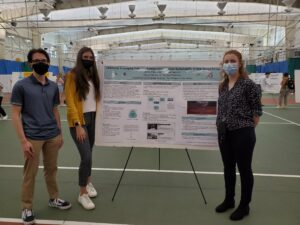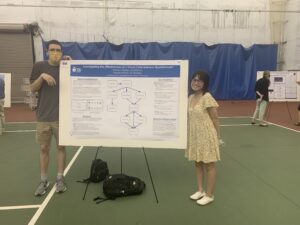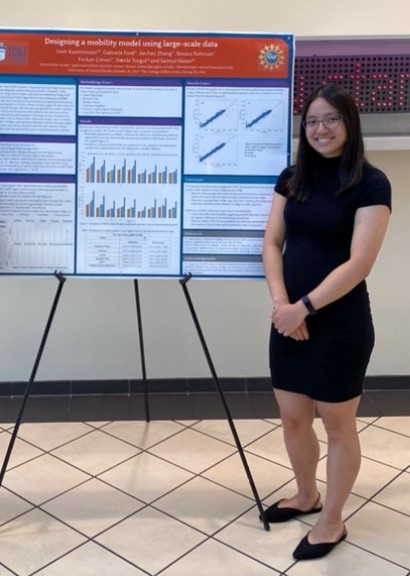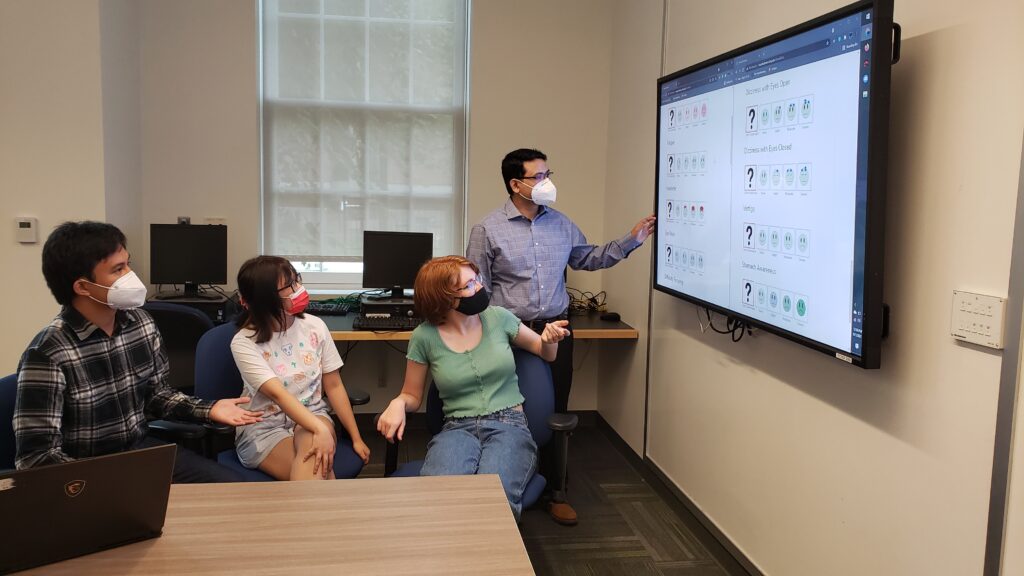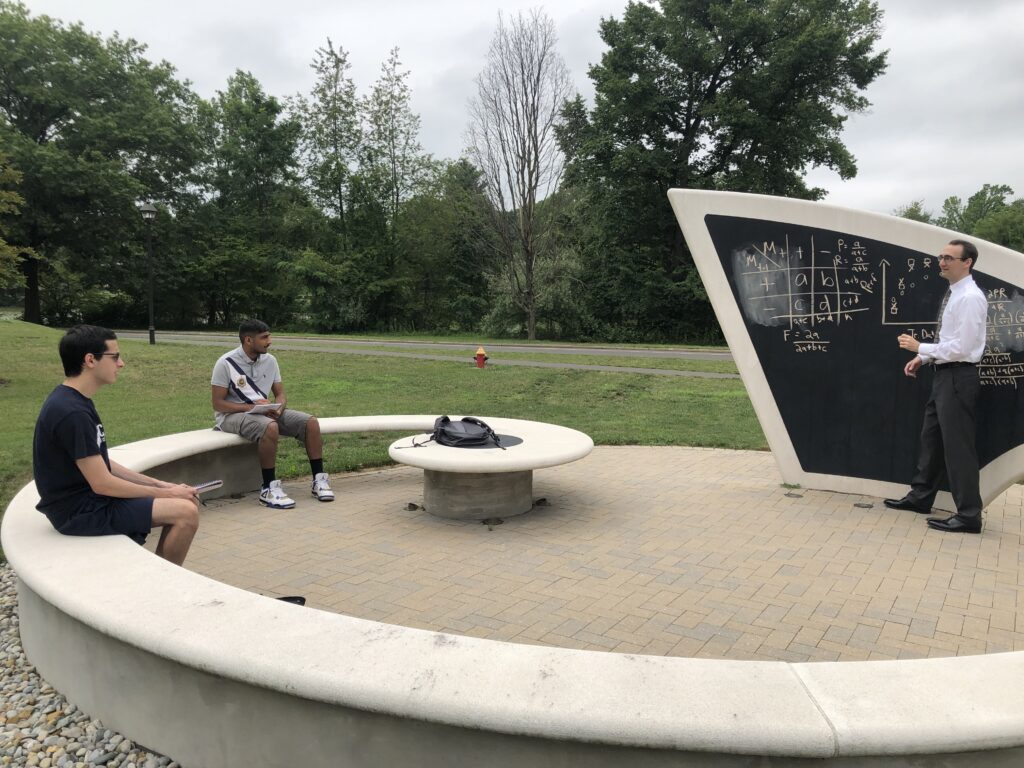On September 20, Dr. Papamichail presented research co-authored by three CS Department students and alumni at the the 13th International Workshop on Bio-Design Automation (IWBDA), held virtually this year. The presentation, entitled “Decodon Calculator 2: Codon-Optimized Degenerate Codon Set Design Tools” synthesizes work completed by Dr. Papamichail and Akira Takada (Class of 2021), Tomer Aberbach (Class of 2020) and Nicholas Carpino (Class of 2018) during their mentored research experiences.
Synthetic biology researchers often pursue the creation of novel proteins with improved properties. Toward this endeavor, researchers design and synthesize libraries of variants of existing proteins to isolate the changes that confer improved properties of interest. Akira, Tomer, and Nicholas have implemented successive versions of web-based tools that enable synthetic biologists to create large but specific protein variant libraries, allowing them to balance synthesis cost with protein library quality.
Congratulations to Dr. Papamichail, Akira, Nicholas, and Tomer!
Dr. Bikram Pal Turka, Senior Lecturer in the CS Department, has authored a chapter titled “Obstacles in Information System Succes” that has been published in Digitising Enterprise in an Information Age, a book published by CRC Press Taylor and Francis Group.
An abstract of the chapter can be found below:
To gain a better competitive advantage in the market, the organizations are using information systems. Most of the organizations either have established the information system or they upgrade their information system. But still there are lots of hurdles for gaining information system success. There has been a large number of analyses of critical success factors of information system projects in the literature, but there is a shortfall in research efforts in studying failures globally and particularly in India. Therefore this chapter attempts to study empirically the obstacles coming in Information system success. A questionnaire survey has been conducted to know the failures factors for not updating the information system timely. The survey has been done on two prominent telecommunication organizations, one having successful IS (Reliance Communication) due to its continuous updation with respect to time, industry and executives whereas other (Puncom, Mohali) did not. As India is the second largest country in terms of mobile users in the world, therefore, the study of this industry is strategically and economically important due to its high potential for the growth of the country.
Congratulations to Dr. Turka!



